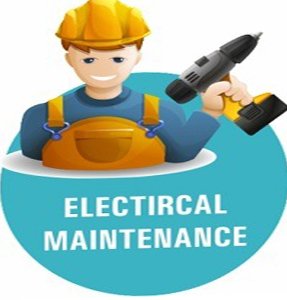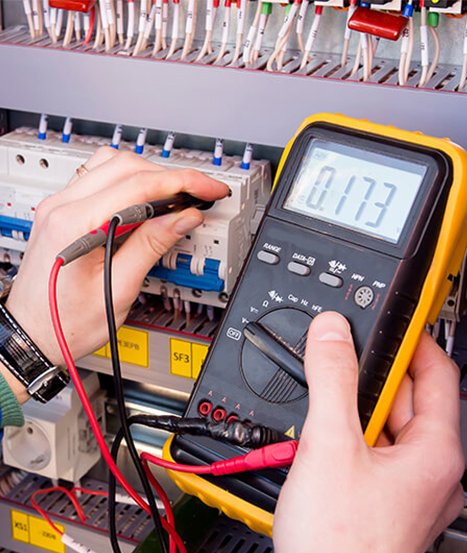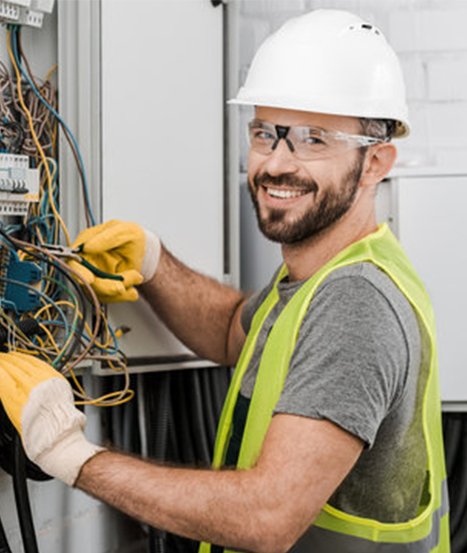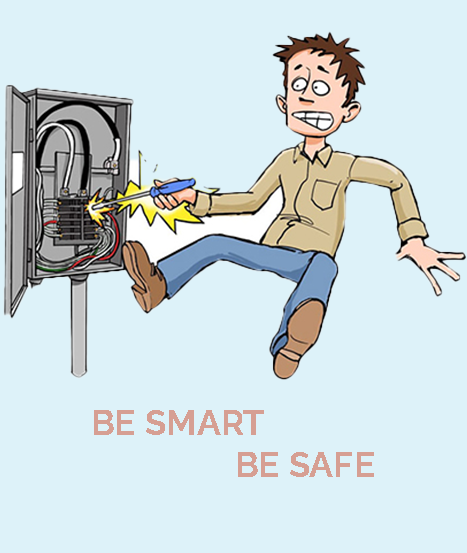Electrical
Maintanance



Making A Safe Electric Repair
Repairing electrical wiring, More than any other home project, wiring repair is more about safety. Proper installation of the outlet will make it as safe as possible. Improper installation can be fatal. Therefore, there are numerous rules for electrical wiring and installation. Of course, the rules are complex and can sometimes be confusing for the master electrician, but there are basic concepts and practices that apply to almost any electrical wiring project, especially DIY experts.
The best way to prevent electrical shock is to ALWAYS test wires and devices for power before working on them or near them. Simply shutting off the power isn't good enough. When replacing the lamp, turn off the lamp circuit with a circuit breaker. Removing the bracket to expose the electrical box creates a slightly more complicated wiring situation. There are four wires in the box. Two belong to the circle of light and the other two belong to another circle. The electrician who installs used this box as a junction box for another circuit (which did not power off). You assume they are all part of the same circuit, but in reality you are digging inside a hot box. If you check the power supply inside the box (it only takes a few seconds with a non-contact voltage tester), you will find that these two wires still have power and you need to find and turn off the circuit breaker.
Service Overview
Step1: Unplug appliances when not in use Use the proper wattage for lamps and lighting fixtures
Step2: Never run cords under carpets, rugs, doors or windows. Get rid of damaged extension cords.
Step3: Keep electrical appliances and tools away from water. Call a professional.

1. Avoid water at all times when working with electricity. Never touch or try repairing any electrical equipment or circuits with wet hands. It increases the conductivity of the electric current.
2. If you are working on any receptacle at your home then always turn off the mains. It is also a good idea to put up a sign on the service panel so that nobody turns the main switch ON by accident.
Why Choose us
"Kavya Home Solution" Is The Best And Affordable Home Solution Service Company In India. We Have All Types Of Packages For Home Solution For Diffrent Kind Of People.
Information for Any
Services
Customer Support
Live Chat
Book Appointment
online
For Safe And Better Results
Follow these simple tips for keeping electrical appliances and equipment in good working order and making your home safe. Never use an aging or faulty electrical appliance including an appliance with a frayed cord, cracked or broken plug, or any appliance that has given someone any kind of shock. Frayed or damaged cords should be replaced immediately or the appliance disposed of. Many old plugs do not have safety barriers between the connections – replace them with modern plugs or dispose of the appliance. All appliances must have a regulatory compliance mark (RCM) and the plugs must have insulated pins, as per the images below.

Do not attempt to repair faulty electrical appliances yourself – only qualified repair technician or a licensed electrician can repair appliances.
Do not touch or attempt to repair a loose, cracked or broken power point switch – cover it immediately and arrange for a licensed electrician to replace it.
Avoid ‘piggybacking’ adapters; instead use a power board with a built-in safety device.
Service appliances in accordance with the manufacturer’s instructions.
Clean the lint filter in your clothes dryer after each use.
Check electric blankets at the start of each winter for damaged wires, plugs, leads, and hot spots – dispose of any electric blanket that is damaged. Remove any buildup of materials around the electric motor of exhaust fans, such as fluff, dust, lint, etc. Clean rangehood filters regularly. Clean ovens and cooktops regularly to prevent the buildup of spilled fats and burnt foods. Do not spray household cleaners, detergents, and insecticides on electrical accessories – they may cause cracking and create an electrical hazard.

